Liszt Ferenc Academy of Music Rankings


| Ranking | Category |
|---|---|
| #7818 of 14,131 | In the World |
| #1757 of 2,785 | In Europe |
| #28 of 43 | In Hungary |
| #15 of 23 | In Budapest |
Quick Review
- Enrollment
- 900
- Type
- Non-profit
- Funding
- Public-private
partnership - Highest Degree
- Doctorate
- Website
- lfze.hu
- Acceptance rate
- 66%*
* The Liszt Ferenc Academy of Music is among the institutions that don't provide data on acceptance rates. This might happen because the university has programs where applicants only need to meet admission requirements to enroll and don't necessarily compete with others.
We estimate the above acceptance rate based on admission statistics of closely ranked nearby universities with similar research profiles that do publish such data.
Acceptance rate & Admissions
| Admissions Requirements | Competitive admission |
|---|---|
| Academic Calendar | Semesters |
| Enrollment | 900 |
Tuition
The tuition table for Liszt Ferenc Academy of Music gives an overview of costs but prices are approximate and subject to change and don't include accommodation, textbooks, or living expenses. The costs of programs might differ significantly for local and international students. The only source of truth for current numbers is the university's official website.
| Program | Tuition Cost (per year) |
|---|---|
| Bachelor's Degree | 1,500,000 HUF |
| Master's Degree | 2,000,000 HUF |
| Doctoral Degree | 2,500,000 HUF |
All costs are in Hungarian Forint (HUF).
Programs and Degrees
The table below displays academic fields with programs and courses that lead to Bachelor's, Master's, and Doctorate degrees offered by Liszt Ferenc Academy of Music.
Note that the table provides a general overview and might not cover all the specific majors available at the university. Always visit the university's website for the most up-to-date information on the programs offered.
| Programs | Bachelor | Master | Doctoral |
|---|---|---|---|
| Art & Design | Yes | Yes | Yes |
| Biology | No | No | No |
| Business | No | No | No |
| Chemistry | No | No | No |
| Computer Science | No | No | No |
| Economics | No | No | No |
| Engineering | No | No | No |
| Environmental Science | No | No | No |
| Liberal Arts & Social Sciences | No | No | No |
| Mathematics | No | No | No |
| Medicine | No | No | No |
| Physics | No | No | No |
| Psychology | No | No | No |
Liszt Ferenc Academy of Music alumni
-
Béla Bartók
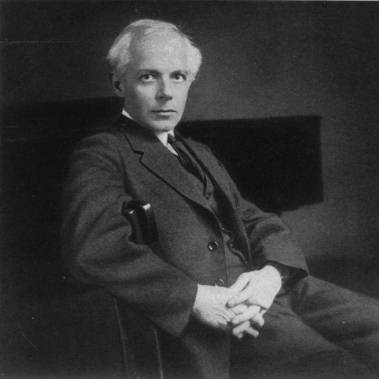
- Enrolled in the Liszt Ferenc Academy of Music
- Studied in 1899-1903
- Occupations
- university teacherpianistcollector of folk musicmusicologistcomposer
- Biography
-
Béla Viktor János Bartók was a Hungarian composer, pianist and ethnomusicologist. He is considered one of the most important composers of the 20th century; he and Franz Liszt are regarded as Hungary's greatest composers. Through his collection and analytical study of folk music, he was one of the founders of comparative musicology, which later became known as ethnomusicology.
-
György Ligeti
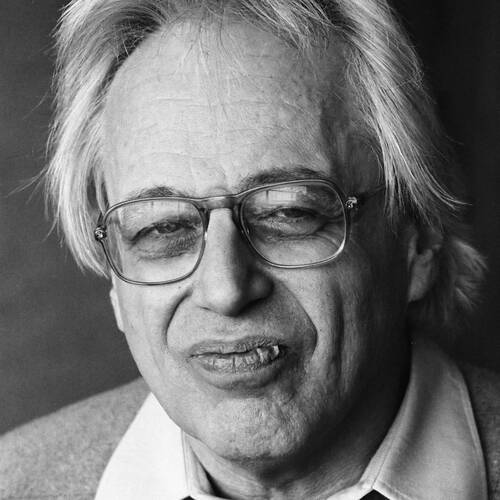
- Enrolled in the Liszt Ferenc Academy of Music
- Studied in 1945-1951
- Occupations
- music educatormusicianlibrettistcomposeruniversity teacher
- Biography
-
György Sándor Ligeti was a Hungarian-Austrian composer of contemporary classical music. He has been described as "one of the most important avant-garde composers in the latter half of the twentieth century" and "one of the most innovative and influential among progressive figures of his time".
-
Zoltán Kodály
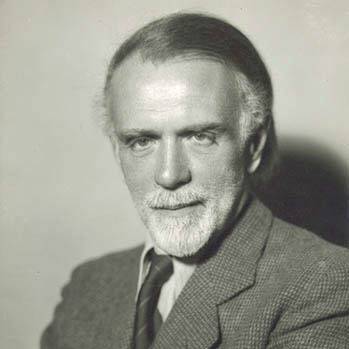
- Enrolled in the Liszt Ferenc Academy of Music
- 1900-1904 studied music composing
- Occupations
- classical composerhigh-school teacherethnomusicologist
- Biography
-
Zoltán Kodály was a Hungarian composer, ethnomusicologist, music pedagogue, linguist, and philosopher. He is well known internationally as the creator of the Kodály method of music education.
-
Emmerich Kálmán
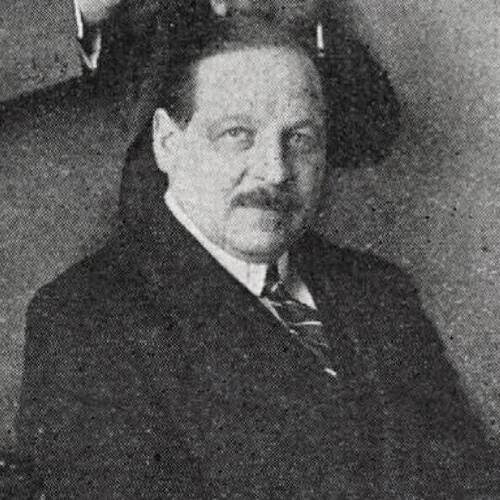
- Occupations
- composerfilm score composerconductor
- Biography
-
Emmerich Kálmán was a Hungarian composer of operettas and a prominent figure in the development of Viennese operetta in the 20th century. Among his most popular works are Die Csárdásfürstin (1915) and Gräfin Mariza (1924). Influences on his compositional style include Hungarian folk music (such as the csárdás), the Viennese style of precursors such as Johann Strauss II and Franz Lehár, and, in his later works, American jazz. As a result of the Anschluss, Kálmán and his family fled to Paris and then to the United States. He eventually returned to Europe in 1949 and died in Paris in 1953.
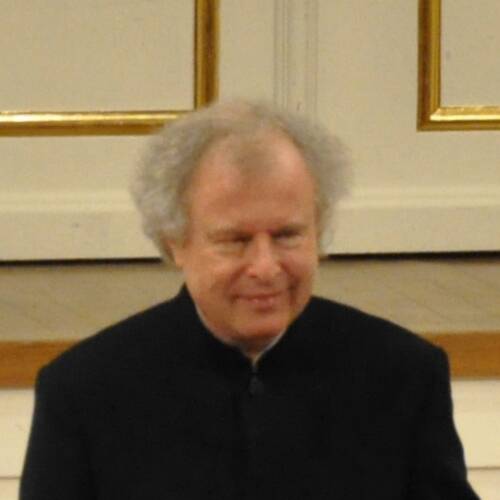
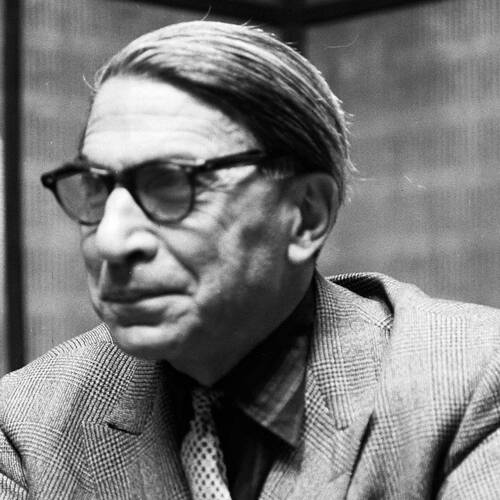
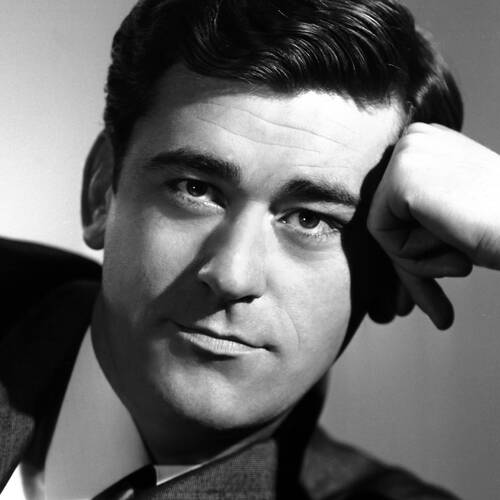

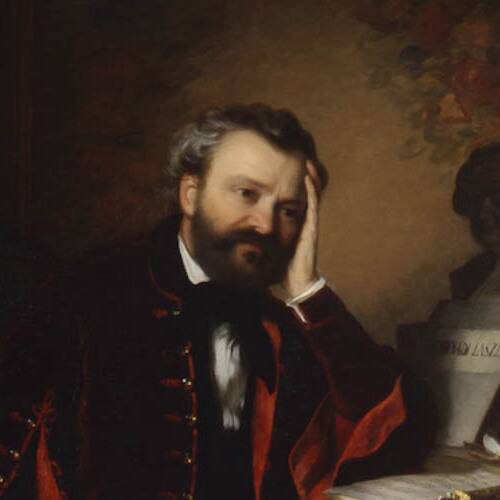
General information
| Alternative names | LFZE Liszt Ferenc Zenemuvészeti Egyetem |
|---|---|
| Founded | 1875 |
| Colors | gold |
Location and contacts
| Address | Budapest Hungary |
|---|---|
| City population | 1,686,000 |
| Phone | +36 (1) 462 4600 |
| Fax | +36 (1) 462 4610 |

